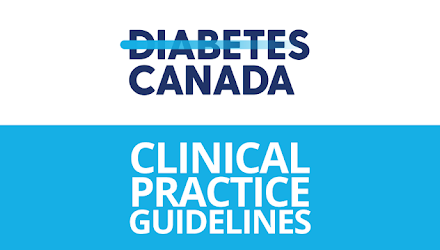Prefer to listen? Check out my podcast here!
Canadians have been waiting for a long time! Two and a half years after approval by Health Canada, Semaglutide 2.4mg (Wegovy) is now available in pharmacies across the country.
As blogged previously, semaglutide 2.4mg is approved for weight management in adults with a body mass index (BMI) ≥30 kg/m2, or a BMI of ≥27 with health issue(s) related to elevated weight (eg diabetes, high cholesterol, sleep apnea, hypertension). It is also approved in teens aged 12-17 with a BMI at or above the 95th percentile who have not had success with lifestyle changes alone.
Wegovy is taken once a week, subcutaneously (under the skin) using a tiny needle. It is available in the FlexTouch pen, meaning that the dose is dialed up through a number of ‘clicks’ to get to the full dose in each pen. The pens are available at doses that correspond to the standard titration starting at 0.25mg weekly for a month, then 0.5mg weekly for a month, then 1mg, then 1.7mg, then 2.4mg. Each pen costs the same, regardless of dose.
As blogged previously here , here and here, in the STEP clinical trial program, semaglutide 2.4mg taken once weekly demonstrated 16-18% weight loss together with lifestyle intervention in adults without diabetes, and about 10% weight loss in adults with type 2 diabetes. In teens, mean change in BMI at 68 weeks was -16.1% (weight loss -14.7%) with semaglutide and lifestyle intervention vs +0.6% (+2.7% weight gain) with placebo (lifestyle intervention alone). It takes about a year to see the full effect on weight with Wegovy.
In 2022, we updated the Canadian Adult Obesity Clinical Practice Guidelines Pharmacotherapy (medication) chapter, and we included a full review of Semaglutide 2.4mg (disclosure: I am the lead author). We discuss health benefits which include improvement in blood sugars in prediabetes or diabetes, blood pressure, cholesterol, fatty liver disease, cravings, and quality of life. Since then, semaglutide 2.4mg has also been shown to reduce the risk of cardiovascular events by 20% in people with overweight or obesity and preexisting cardiovascular disease. It has also been shown to markedly improve symptoms of heart failure in people with heart failure with preserved ejection fraction (HFpEF), with diabetes and without diabetes.
In terms of common side effects, about 20-25% of people can get gastrointestinal upset, mostly early on in treatment. This can include nausea, diarrhea, constipation, heartburn, and/or vomiting. In some cases, increasing the dose more slowly may help to minimize gastrointestinal side effects that can occur. My colleagues and I previously published a paper on how to manage gastrointestinal side effects that can be seen with the GLP1 receptor agonist class.
In terms of rare side effects, I counsel my patients that there is about 1% chance of getting gallstones over and above the risk of gallstone formation from weight loss alone. I also advise that there is about 1 in 1000 per year chance of pancreatitis.
Wegovy is contraindicated (must not be used) in people with a personal or family history of medullary thyroid cancer, or in people with multiple endocrine neoplasia type 2 (MEN2) – both extremely rare. It must also not be used in pregnancy or breastfeeding, and should be stopped 2 months before a planned pregnancy.
In our Guidelines, we encourage health care providers to use their judgement in applying the approved BMI criteria (which are the same for all approved obesity medicines in Canada), remembering that some people may have obesity (particularly with excess central fat in and around the abdomen) at a BMI lower than 27, and some ethnicities have obesity at a lower BMI than Caucasians. On the other side of the coin, it is not appropriate to prescribe weight management medication for people who do not have elevated weight but are looking to lose a few pounds for aesthetic reasons.
Many are familiar with Ozempic, which is the brand name for semaglutide for diabetes management. Wegovy and Ozempic are identical, except in dosage. Ozempic is approved for management of type 2 diabetes at 0.5mg, 1mg, or 2mg weekly; Wegovy is approved for weight management at 2.4mg weekly. The dose escalation regimens for each are also a little different. As semaglutide can be highly effective for weight management, and because it can cause gastrointestinal side effects, some people may not need, or may not tolerate, the full dose. In my view, weight management medications should be titrated as needed and tolerated to the best dose for that person to achieve their personalized health targets.
As semaglutide has been available as Ozempic for diabetes management in Canada since 2018, there are many Canadians who have been prescribed Ozempic for weight management who don’t have diabetes. Some have been able to get insurance coverage for Ozempic even if they don’t have diabetes, and some have not. Some have sadly had coverage for Ozempic that was subsequently withdrawn. As regards Wegovy, about 40% of private health insurance plans in Canada pay for weight management medication. Those who have been denied coverage for Ozempic may wish to check with their pharmacist to see if Wegovy (label for weight management) is/going to be covered by their insurance company. Unfortunately, there is no public coverage for weight management medication in Canada.
I am excited to see Wegovy become available for weight management in Canada. The demand for semaglutide and other highly effective weight management medication remains very high around the world, and shortages continue globally. I am hopeful that the supply of Wegovy in Canada will be able to keep up with the demand.
Disclaimer: I am an investigator in clinical trials of semaglutide. I receive honoraria as a continuing medical education speaker and consultant from the makers of semaglutide (Novo Nordisk).
Share this blog post using your favorite social media link below!
Check me out on X/twitter! @drsuepedersen
www.drsue.ca © 2024












